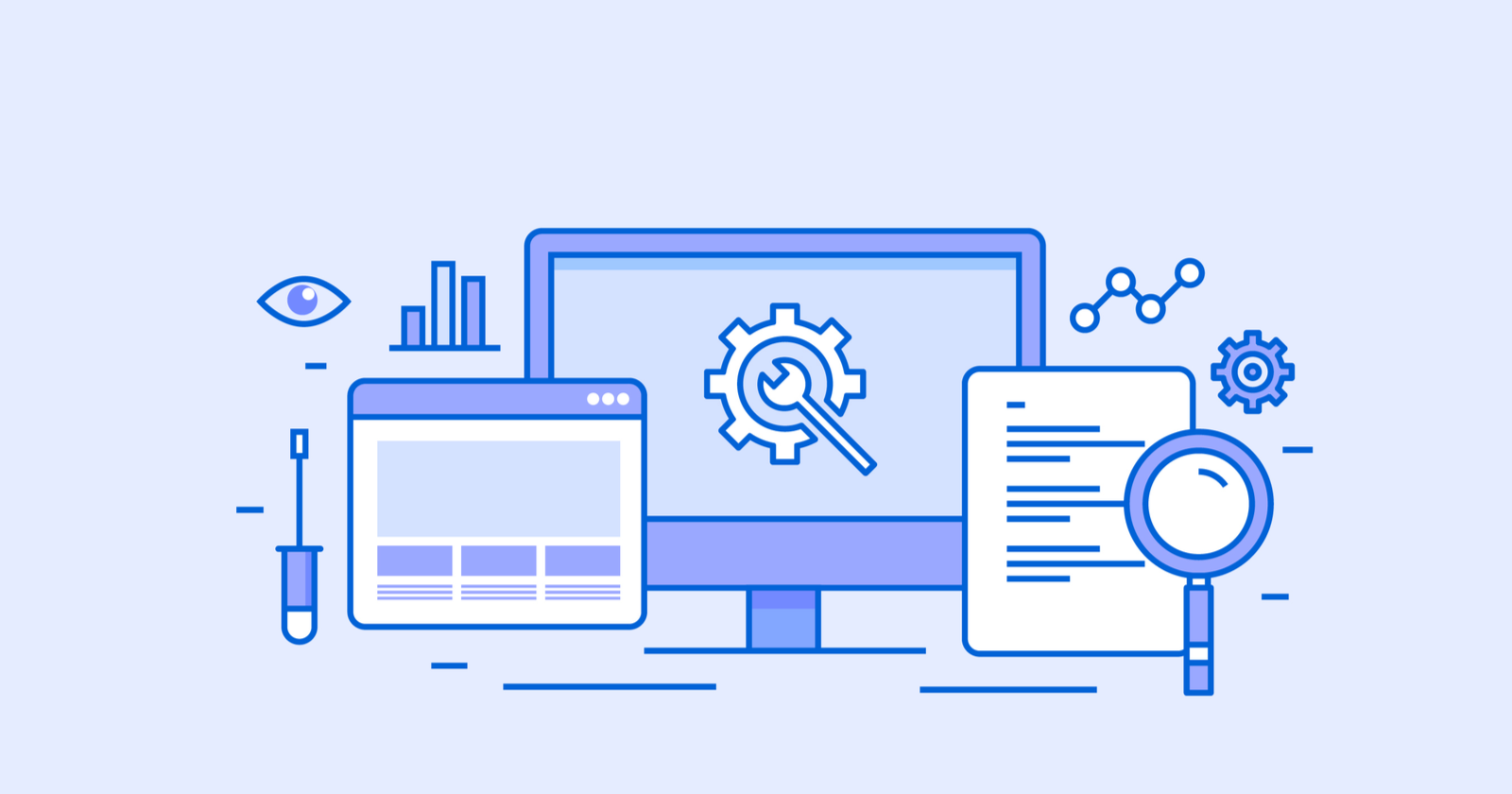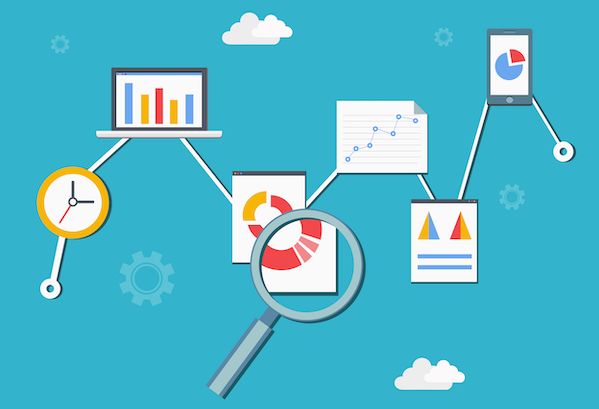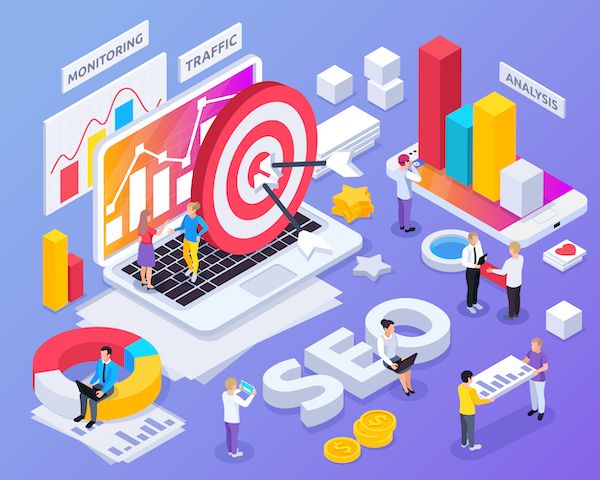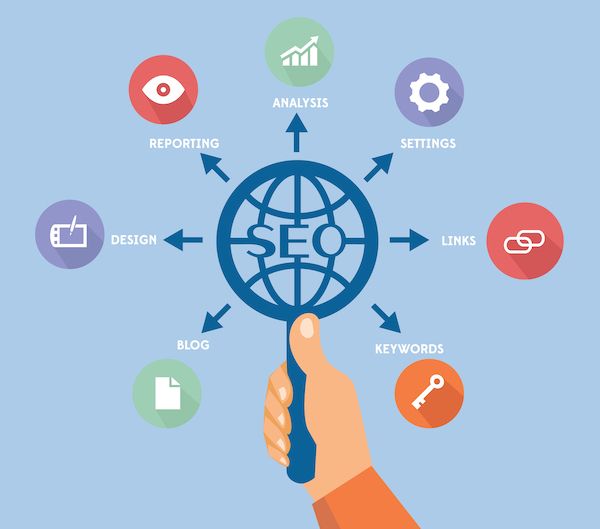In this post, we’re going to cover some of the most important things you need to know about SEO tools for ecommerce.
If you’re reading this, chances are you already know a thing or two about SEO. Maybe you’ve got an amazing website that is doing well, or maybe you’re just starting out and looking for some advice on how to get started. Either way, there are a number of different tools available that can help improve your SEO efforts and make your site more visible in search results.
But what should you be looking for in an SEO tool? And how do they differ from one another? Well, that depends on what kind of business owner you are! Let’s take a look at some different types of businesses and the kinds of tools they might want to use.
Seo Tools For Ecommerce

Google’s Structured Data Testing Tool helps merchants create new website pages and improve existing ones with manual optimizations. Most importantly, this tool validates structured data accuracy. Google frequently pulls structured data and schema.org into its Knowledge Graph – a key benefit that can improve search visibility.
Google Analytics
If you own or operate a website, you should be using Google Analytics. Google Analytics records, visualizes and analyzes website statistics to help your business grow.
With Google Analytics, you can attribute website traffic to different sources and implement eCommerce tracking to record purchases. Use goals to measure lead generation conversions or monitor your website with real-time reports. Regardless of your business size or vertical, we recommend Google Analytics as one of the best SEO tools to measure and improve your website’s performance
Google Search Console
When you’re trying to increase organic search presence, we recommend going right to the source with Google Search Console. This tool uses search analytics to help you optimize content, submit your websites and specific URLs for indexing and receive alerts about website issues. Overall, Google Search Console helps you understand how Google views and ranks your pages.
Google My Business
Google My Business enables any business to create and maintain a highly visible online profile that displays in Google search results. This free SEO tool helps businesses engage with customers and displays photos, hours of operation, customer reviews and more.
We recommend that eCommerce businesses optimize their Google My Business accounts with visuals and content that enhances their overall brands. Additionally, businesses should demonstrate what makes their products unique and actively respond to customer reviews.
Google Tag Assistant
Tag Assistant helps you setup Google Analytics, Google Tag Manager, Google Ads and other tags correctly. Use this tool to monitor current tags on your website, identify errors and implement suggested improvements. Overall, this easy-to-use browser extension helps reduce headaches and ensures accurate data from Google tools.
Google AdWords Keyword Planner
Searching for keyword ideas? Although this tool is designed for Google AdWords campaigns, it can still provide value for organic optimization.
Use Google AdWords Keyword Planner to identify related phrases and measure associated search volumes. You can also export this information through Google AdWords to review later.
Google PageSpeed Insights
Google PageSpeed Insights API (PSI) measures page performance and provides suggestions to help you improve. This tool also provides lab and field data, which helps debug performance issues and capture a true, real-world user experience.
Page load times influence organic search rankings. As a result, we recommend businesses frequently use Google PageSpeed Insights to ensure their websites load quickly and display in organic search results.
SEO Site Checkup
This suite of tools offers insights for a variety of SEO issues. To start, choose specific items you want to improve, such as visitor breakdown, sitemap files, backlinks, favicons – you name it! SEO Site Checkup will assign your site an overall letter grade and identify the most important fixes to help you improve.
Keywords Everywhere Browser Extension
This free browser extension reveals accurate search volume, CPC and competition data to help you identify keywords that can move your business forward. The Keywords Everywhere Browser Extension also suggests related long-tail phrases, and lets you download keyword lists with Excel, CSV or PDF file formats.
SEO Minion Browser Extension
This all-in-one SEO Chrome add-on analyzes on-page SEO for redirects and broken links. SEO Minion also identifies your website’s predicted rankings using a SERP preview tool. With advanced settings and multi-location SERP views, this tool helps you get a comprehensive view of your organic search potential.
Keyword Keg
Keyword Keg’s three main features can help businesses tackle keyword research. Find Keywords, Import Keywords and Merge Words tools help identify related keyword opportunities. Additionally, this browser extension provides keyword metrics and generates multiple keyword combinations to expand your future organic search footprint.
Best SEO Tools – Payment Required
Screaming Frog Spider Tool
The Screaming Frog SEO Spider Tool is a desktop extension with a variety of different features and functionality to measure your website’s SEO health. After you run a crawl, the export will include insights about key elements like title tags, alt tags and 301 redirects to an Excel doc for easy analysis. Although its interface is somewhat difficult to navigate, the data Screaming Frog Spider Tool provides offers significant value to help you maintain your eCommerce store.
SEMrush
SEMrush is an all-in-one marketing resource that offers SEO, paid traffic, social media and content/PR analysis tools. The SEO tool collects keyword data, anchor text, backlinks, ranking position and more to help you gain a comprehensive view of your organic footprint.
Moz Pro Keyword Explorer
Moz Pro Keyword Explorer uses a unique formula to show keyword difficulty based on page/domain rank, page/domain authority, competitors, current rankings and more. It also compares keyword difficulty and offers a refreshing alternative to other keyword suggestion tools. As a member of the Moz Pro SEO suite, Keyword Explorer is a fantastic value and helps businesses prioritize keywords to target.
Moz Pro On-Page Grader
Moz On-Page Grader is one of the best SEO tools for optimizing content. This on-page analysis tool grades the quality and relevance of a specific URL based on your desired keyword. The report card assigns a letter grade to your URL and displays actionable recommendations to improve the quality of the page.
Moz Pro Link Explorer
Moz Pro Link Explorer’s vast link index helps you create solid strategies, track progress and uncover valuable link prospects. This tool uses a machine learning algorithm that mimics Google’s index to prioritize the links this tool crawls. Easily compare link profiles, track Spam Score and create a link tracking list to monitor links over time.
Raven Tools Link Manager
If you’re managing link-building efforts on your site, this link building management tool is a must. Raven Tools Link Manager helps businesses analyze the active and inactive links, link anchor text and backlink domains. This tool is also a part of the larger Raven Tools SEO Suite, which gives access to rank tracking, keyword and competitor research tools and more.
Ahrefs
Marketing and SEO experts recommend Ahrefs as one of the best eCommerce SEO tools. Use Ahrefs to research competing websites by looking at “Top Pages” and exact keywords that drive visits to their sites. This data helps you learn why your competitors rank for desired keywords and determines what you need to improve overall rankings.
Conclusion
Curious about how an effective eCommerce SEO strategy can help your business grow and want to speak with an expert? We’d love to hear from you!
Please shoot us a message using the form below. We look forward to learning more about your business and identifying ways to help you reach your organic search goals.
off page seo for ecommerce
Off-Page refers to factors outside of one specific webpage or site that affect rankings on search engines like Google – things like linking from other sites, social media mentions, and domain authority.
One way to improve your SEO is through on-page optimization, which includes writing good content that people will want to read and sharing with other websites or social media channels.
Off-page optimization involves getting links from other sites that link back to yours – the more high ranking the place you’re connecting from, the better! You can check this on Google Search Console for website pages on your own website.
What is SEO for E-commerce?
SEO for e-commerce is the process of boosting a website’s rank on the search rankings results page by optimizing web pages. This includes implementing on-page and off-page SEO techniques to increase website visibility, which means more traffic to your online store.
Since there are close to 5 million e-commerce websites worldwide, it has become increasingly difficult to be noticed among the crowd of competitors.
On-page SEO for e-commerce sites involves optimizing web pages to rank higher in search engines by following certain on-page SEO best practices. Search engine crawlers are designed to discover, understand, and index websites quickly, and this is made more efficient by following specific rules/guidelines for each of the websites.
What is On-Page SEO?
Many people hear about “On-Page SEO”, and they think it has to do with the content on the webpage. The truth is that On-Page SEO is a tiny part of how Google ranks your website. SEO stands for Search Engine Optimization.
There are a lot of factors that go into SEO, and On-Page SEO is just one aspect of it. Webpages can be optimized in many ways, but On-Page SEO is just the beginning. Many newbie marketers try to “jump on the bandwagon” without doing their homework.
On-page SEO for e-commerce means optimizing your web page to rank higher. This includes everything from the page title, meta description, header tags, alt tags, image optimization to internal link structure.
More about on-page SEO

Remember that the more significant role of Google is to deliver relevant results to users. They want their users to have a good user experience by providing the best search results they can. That means that your web page has to be optimized for both users and Google.
Google has to be able to read & index your page quickly, and they have to be able to rank it as high as possible for relevant searches.
Then when their SEO efforts don’t work out, they say that “SEO doesn’t work.”The truth is that SEO takes time, effort, and patience for it to work.
On-Page SEO is when you optimize your webpage to rank higher on Google. Four main factors affect how Google ranks a webpage: your Content, Domain (the website), and two other elements known as ‘metadata” and “user interaction”.
On-Page SEO Factors For E-commerce
 Here are the On-page Search engine rankings for e-commerce:
Here are the On-page Search engine rankings for e-commerce:
Your website should have unique meta descriptions, titles, and URLs for each page to optimize it for SEO. This is important because Google looks at these when determining what the page is about before displaying it in the search result.
Avoid using default meta descriptions and titles because it might lead to duplicate content issues for your website, affecting how well Google ranks your site.
The more quality incoming links you get, the better exposure you will have from Google and other search engines.
High-page-rank websites might be able to link to your website without any problems, but if your site is new, then it is best practice to avoid links from low-quality sites to improve your site’s Page Rank.
The more content you have, the chances you’ll have of ranking higher in Google’s results, so make sure not to outbound link all the time, but do outbound link where it makes sense.
Find good working keywords, write quality content relevant to your business, then optimize the page for SEO by applying the right on-page strategy.
Don’t just focus on optimizing one page because it’s important to remember that Google will rank an entire site rather than just one page.
You should also ensure that your meta keywords and descriptions are different from those of other sites, as it could result in content duplication.

More factors to consider
Use h1, h2 tags to highlight important keywords or phrases on the page where you think they fit best.
Try using keyword-rich anchor text links to other pages on your website whenever possible.
If you include links within the content, make sure they are do-follow links where it makes sense.
Add internal links with relevant keywords linking to essential pages of the site; thus, using keyword-rich anchor text will help Google understand how your page is relevant to the rest of the website.
Keep your site updated and relevant to the latest industry news as Google looks at how well you update your content to determine if you’re a high-quality or low-quality website.
It would help if you also remembered that Google knows when pages on your site were created, and this is another ranking signal which means it’s essential to make sure your site is updated and that no pages are indexed in Google with broken links or other errors which can affect the quality of the content on your page.
When you write blog posts, make sure to include relevant keywords in your title, use tags, and add a description along with a link back to the original article where appropriate.
Avoid using dynamic and static URLs in your site because Google puts a lot of weight on the content within the URL itself when ranking pages in search results.
Make sure to include relevant keywords in your meta tags but don’t go overboard because it could result in duplicate or thin content, which can be penalized by Google.
What is Off-Page SEO?
Off-page SEO is the term used to describe all the factors outside your website that can influence your ranking. These include other web pages, social media mentions, and backlinks pointing to your web page.
These elements help search engines understand which websites are essential and well-respected within an industry.
The purpose of off-page SEO is to generate more traffic to your site. The main goal is to achieve better rankings organically or enhance the current ones.
The ranking of any website largely depends on visitors referred from other websites, social media channels, and search engines. This also includes e-commerce sites.
Off-Page SEO is everything that happens outside of your website. This includes links, social media, other sites, etc.
Off-Page SEO Factor For E-commerce:
Google places a lot of emphasis on backlinks for e-commerce websites; they are vital to getting a good ranking.
If your website is small, the best way to build up the number of quality backlinks is by creating high-quality content and linking back to your website. You don’t have to ask other people to link back this way.
The number of incoming links is an important ranking signal; make sure you have a good structure and avoid large numbers of outbound links and no, follow, or redirects.
You cannot control your site’s rankings in Google’s search results, all you can do is try to influence it, and one way to do this is by off-page SEO.
Good quality outbound links pass value, but not all links are the same, so you have to be careful about how many low-quality links you can afford.
Make sure your website uses keywords in its URLs, titles, meta descriptions, and within the content itself.
Keyword research in the URL, title and meta description is also essential as Google puts a significant amount of weight on these factors as well as content relevance and other ranking signals such as links, links themes, and page authority
Try to avoid keyword stuffing and don’t use low-quality link-building techniques to improve your site rankings.
On-Page vs. Off-Page SEO for E-commerce
An e-commerce website is essentially a conglomeration of thousands of pages, most with similar structure and content. This makes e-commerce websites very susceptible to search engine optimization (SEO). e-commerce SEO is vastly different from traditional SEO, as the goal is not just to be visible on search engine results pages (SERPs) but also to rank for valuable keywords that bring in leads and sales.
With this in mind, it is crucial to focus SEO efforts on both on-page and off-page strategies. On-page focuses on the content of individual web pages, while off-page is concerned with links pointing at a website. The following are some insights into how e-commerce companies can leverage on -and off-page SEO to help increase their website’s rankings and traffic.
Is On-Page or Off-Page SEO More Important?
The on-page and off-page SEO for e-commerce factors both play a vital role in how well your site will rank. If one has a great product but terrible on-page SEO, chances are the site won’t rank very well. For instance. the e-commerce SEO strategy includes different products and category pages.
However, if the on-page is top-notch and you have some popular backlinks but no off-page, chances are the site won’t rank that well either. Mix both, and you’ll have a lot of success with your site, so it’s up to you to decide which one is most important.
What Can I Do To Improve My On-Page SEO?
You can do several things to improve your on-page SEO besides the obvious stuff, like making sure all of your pages have a meta description and title.
One thing you can do is make sure you don’t have broken links or missing images, as Google will consider your site to be hacked if there are. You can also “no index” pages you don’t want indexing in Google, such as your privacy policy or about us page if they’re not relevant for visitors.
You should also make sure your site is responsive to mobile devices, as Google will punish you in rankings if your website can’t be adequately viewed on a mobile device.
This means making sure links are easy to click, and buttons do not go off the screen. Another good idea is to write unique page titles and meta descriptions for each page so you’ll rank for various keywords and phrases.
The Bottom Line
 Do you want to generate more revenue for your e-commerce website? If the answer is yes, it’s time to start focusing on SEO. Search engine optimization or SEO is a powerful tool to help e-commerce websites achieve better rankings in search engines.
Do you want to generate more revenue for your e-commerce website? If the answer is yes, it’s time to start focusing on SEO. Search engine optimization or SEO is a powerful tool to help e-commerce websites achieve better rankings in search engines.
There are many different types of SEO, but this article will be focusing on on-page and off-page SEO for e-commerce websites. On-page SEO and off-page SEO. While on-page is essential for getting the right keywords into your content, off-page is also a necessary part of this process
Conclusion
Let us know your thoughts in the comment section below.
Check out other publications to gain access to more digital resources if you are just starting out with Flux Resource.
Also contact us today to optimize your business(s)/Brand(s) for Search Engines
